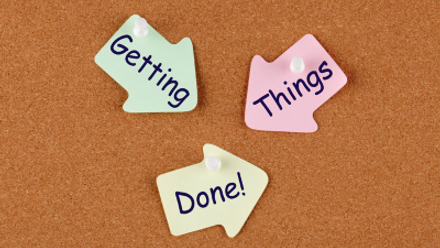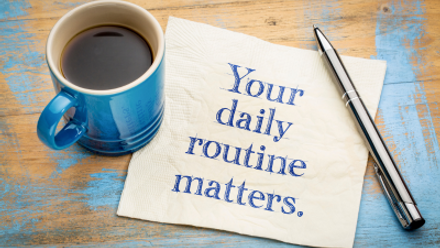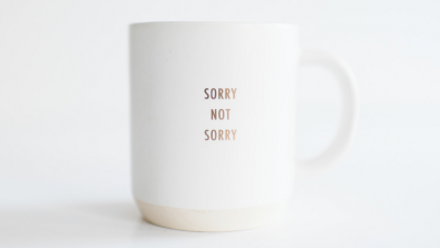Making things Happen: Mastering Productivity and Organisation
5 minute read
One of the key things I have found to be catalytic in making things happen, is my ability to be productive, organised and effective in all that I do. In all of my interactions with tasks, with people, events and conversations.
We all desire to make things happen, to change things from the way they are to something better. Or to change ourselves, in order that when things happen we respond differently to how we would have done before.
To be more productive or more organised, I would like to enhance my efficiency and effectiveness in completing tasks and achieving goals. For each of us, our approach will be slightly different as we are all uniquely designed and created.
In this blog, APDO member Julie Stevens shares her thoughts on making things happen in the workplace by first reflecting on her unique work style to unleash her full potential.
She begins by sharing 3 key elements that many writers suggest affect personal productivity and organisation:
1. Time Management
Time is finite. There are only 24 hours in each day and for around 8 of those we sleep. Generally, it is accepted that we work for 8 hours a day. How do we manage something that is finite, has boundaries and is fixed? How do we manage time?
Would it actually be better to consider how we manage ourselves within time?
When we look at being productive and organised in this light, we start to appreciate that we need to know ourselves well. We need to be self-aware. We need to understand what we need in order to keep ourselves alive and healthy, what we need to help us complete tasks. And we need to appreciate that we are all individual and that comparison will only be the ruin of us and not lead to our success.
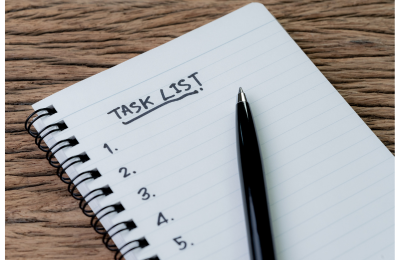
2. Task Management
We can manage tasks. Taking the time at the beginning of a project or set of tasks, to understand the intricacies of the tasks, will help us to evaluate what micro tasks or actions need to be done in order to complete the whole project. Many tasks that we do on a daily or regular basis are made up of many micro tasks. A string of actions. Many tasks become automatic at a foundational level. For example, think about all the actions/micro tasks that go into making a cup of tea. There are tasks that are the same each time.
Keeping tasks well-defined and having a clear plan for their completion contributes to our organisational success and our productivity. Some tasks will have pre-determined standards for the quality of the finished task. Back to making tea - milk and sugar, or just milk, or no milk, but yes to sugar. The standard of the finished task depends on the initial parameters of the brief. So understanding the desired outcome first means asking questions - how do you take your tea?
3. Effective Communication
Organised and productive people often excel in communicating clearly and keeping others informed. They are good at asking questions to ensure they understand the brief and they will keep notes to aid their memory. Effective communicators respond promptly to messages, keep track of important tasks and projects, and employ routines or habits wisely.
Discovering your unique Work Style
I mentioned earlier that we are all created uniquely, by which I mean that we will all have different work styles - different ways of achieving the same task. Think again about making tea - some people put the milk in the cup before pouring water on the tea bag and others will add the milk after the water. Others will make tea with loose leaf tea in a tea pot. All different ways of doing the same task.
How then can we discover and evaluate our work style in order that we can increase our levels of productivity and organisation?
- Self awareness and reflection - consider your personal preferences. For example, do you like to work in a busy or quiet environment? Do you have certain times of the day when your performance peaks? Are you a thinker in the morning or the evening? When do you prefer to have meetings with others, and are these online or face to face?
- Assess your strengths and weaknesses - recognise your natural abilities and what you excel at, so that you can manage tasks and projects well and ask for help and support in the areas that you are weaker in.
- Experiment with different approaches - different methods of completing a task or ways of managing your task list. Pen and paper or electronic?
- Learn from past experiences - our past successes and challenges can tell us a lot about our work style. Analyse them and ask for feedback from colleagues, mentors and friends.
- Understand your communication style - tailoring your communication style to your preferences can improve collaboration and understanding. By becoming an effective communicator you increase your productivity and organisation.
- Embrace flexibility - be open to change. Recognise that your working style will evolve over time as you learn more about yourself and make changes to the way that you do things.
- Identify your motivations. I read this from the author of Atomic Habits by James Clear:
"I have learned that whenever I think "I don't have enough time to do that" what I usually mean is "I don't have enough energy" or "I am not actually interested in doing this."
What I need to do a better job is not managing my time, but rather caring for myself and identifying my true interests.
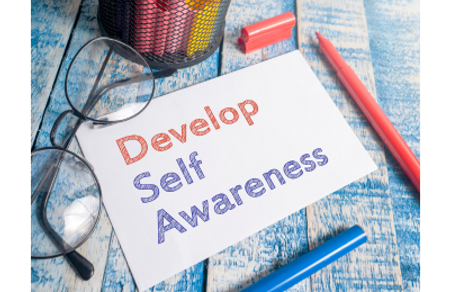
When I am well-rested and working on something I am genuinely excited about, finding time is rarely a problem.”
Knowing yourself well will increase your ability to make things happen. Being productive and organised in your workplace will increase your performance. Doing something that you are excited about will bring you joy.
Start to get to know yourself today.
If you would like some help in becoming more self-aware, working with a productivity coach could get you great results very quickly. Search our APDO membership by specialism to find a coach near you.
Julie Stevens is a Co-Creative Productivity Coach with a background of 30 years in Interior Design for the workplace and home. She enjoys seeing the changes in people as they curate and cultivate the things that make them truly Younique. You can find out more about Julie at Younique designs.

